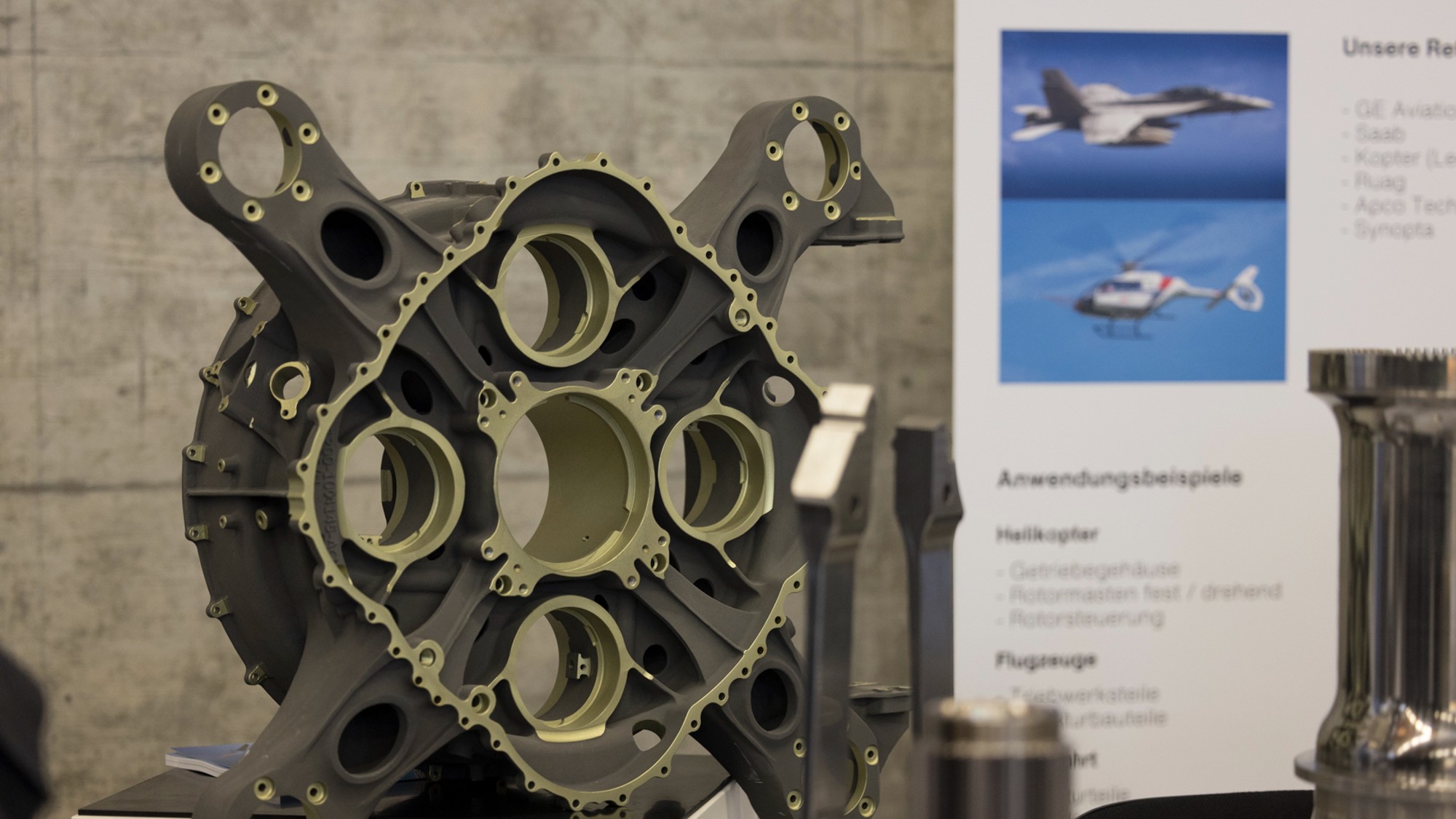Background - 03.06.2022 - 00:00
Aviation on the way to climate neutrality
On 2 June, the "Aviation and Space Symposium 2022" in St.Gallen shed light on the relaunch of aviation under sustainability criteria and showed the importance of the space industry for our life on earth. One speaker referred to space as the "backbone of our economy."
Source: HSG Newsroom

3 June 2022. "We are delighted that St.Gallen is hosting Europe's largest aviation and space symposium for the first time today," said Dr. Andreas Wittmer, head of the Center for Aviation Competence at the University of St.Gallen (CFAC-HSG), opening the Aviation and Space Symposium in the Olma hall. The political situation for aviation and space in Switzerland was explained by two guests from the Swiss government. Francine Zimmermann, Director Aviation Policy Strategy of the Federal Office of Civil Aviation (FOCA), gave a short presentation on the climate strategy for civil aviation. Switzerland wants to reduce emissions from aviation with the help of new technology and regulations. Renato Krpoun, Head Swiss Space Office (SERI), demonstrated the role Switzerland plays in the global space industry. For example, he said, Switzerland is involved in 60 ESA programs and is considered an innovation driver.
Dr. Andreas Wittmer, Managing Director HSG Center for Aviation Competence (CFAC-HSG).
The dream of flying has its price
Sustainability management expert and HSG professor Judith Walls took a critical look at the environmental impact of aviation in her presentation at the start of the conference. "The dream of flying has been with us since time immemorial. Dreams, technology and imagination have taken us far: we fly around the world and into space. But this dream has a price: it has become a driver of climate change." The HSG professor called on the aviation and aerospace professionals gathered in St.Gallen to rethink their business models and integrate sustainability into corporate strategies.
Prof. Dr. Judith Walls, full professor of Sustainability Management (IWOE-HSG)
Dr. Philipp Furler, founder and CEO of Synhelion, presented a sustainable innovation: His company turns sunlight into fuel and aims to supply much of Europe with the new resource by as early as 2040. "Solar fuel should replace fossil fuels in the long term," Furler said. Stefan Tschudin, COO Zurich Airport, emphasized that Zurich Airport Ltd. is committed to reducing CO2 emissions to net zero by 2050 at the latest. The goal is supported by a comprehensive roadmap and a certified climate program, he said.
A rethink is needed by all involved
In a joint discussion, the panelists addressed sticking points in the implementation of climate-neutral aviation. It was emphasized, for example, that new technologies would make an important contribution to the net zero target. At the same time, however, a rethink is needed among all those involved. More and more people wish to travel by air and have the opportunity to do so. If the number of aircraft movements increases rapidly due to the high demand, there is a great danger that the efforts to achieve climate neutrality will fizzle out. There is a need to realize that not every vacation trip has to be made by plane and not every business flight is really necessary.
Another point raised in the discussion was the need for greater awareness of the importance of sustainability at a wide range of levels, especially in the business world. The topic must be given more weight in training and further education. However, most experts also expressed their conviction that aviation is well on the way to becoming truly sustainable in a few decades. However, this applies first and foremost to aviation in Europe.
Space travel and the space economy take off
The second part of the symposium was devoted to space travel, which is experiencing a rapid boom. Already, there are hundreds of newly established companies that want to participate in new business models. "The space sector is developing so dynamically that it will play an ever greater role in our life on Earth in the future," emphasized Prof. Dr. Pascale Ehrenfreund. The astrobiologist was chairman of the board of the German Aerospace Center until September 2020. The increasing participation of commercial space players as well as new and emerging spacefaring countries is leading to paradigm shifts and upheavals in the space sector, she said. "Forecasts predict that the global space industry will generate revenues of $1 trillion or more by 2040."
Dr. Axel Roenneke, vice president Kex Account & Sales at Beyond Gravity, called space the backbone of today's economy. In his remarks, he made clear that it already plays an important role in many fields of technology. For example, satellites enable seamless telecommunications, control decentralized energy systems, organize traffic flows via navigation systems and support precision irrigation in agriculture.
Ulrich Kübler and Marc Maschmann, both from Airbus Defence and Space, presented new technologies, materials and processes designed for the most challenging environments in space. Airbus, they said, is one of the few companies in the world with the technical expertise to develop extremely challenging space missions for all destinations.
Cleaning space of junk
Dedicated to cleaning space is Luc Piguet. He is co-founder and CEO of ClearSpace. "Sustainability goes beyond the boundaries of Earth," he stressed. Orbit, he said, is teeming with space debris such as broken satellites and rocket debris. They endangered both manned space flight and the satellite industry, which is becoming increasingly fundamental to our lives on Earth. The panel discussion focused on the importance of space for Europe. European countries urgently need to set the course now in order not to lose independent access to space.
The symposium also included an exhibition of aerospace industry organizations from German-speaking countries. Their presentations, together with those of the speakers, made it clear how much potential is expected from space in a wide variety of economic sectors. In addition to solutions for global environmental and climate protection, it is hoped, for example, that the extraction of raw materials.
Images: University of St.Gallen (HSG)/Hannes Thalmann